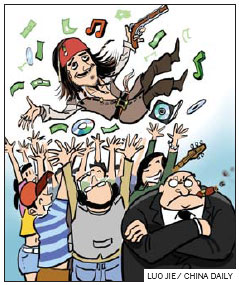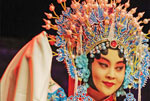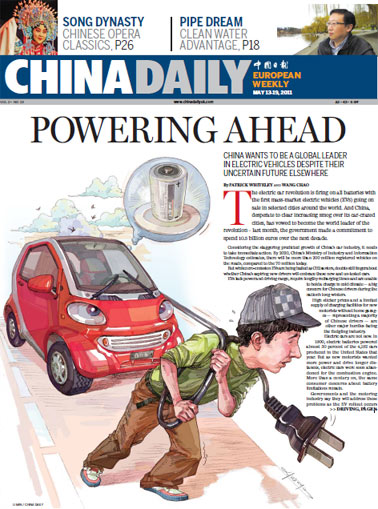View
Sinking piracy is not a smart move from consumer's POV
Updated: 2011-05-12 07:56
(China Daily)
 |
Owning land is a relatively straightforward concept. You have the deeds, put a fence around it, a sign saying trespassers will be prosecuted, and that's it, lock, stock and barrel. Copyright issues and intellectual property rights (IPR) are more complicated, though no less profitable. And there's the rub. It's all about the money.
Which serendipitously brings us to the author Han Han, who I'm informed will be writing for the New York Times as a columnist in the near future. Han has recently been brandishing his iPad at Baidu, furiously criticizing the company's founder, Robin Li, for sharing digital information at the expense of poor writers like himself.
Some will say this is all very laudable and it certainly is in line with officialdom which, since China's accession to the World Trade Organization, has been clamping down on copyright infringement, from vendors selling fake brand-name goods at Silk Street Market, to the closure of unregistered DVD shops, to checking government offices use registered software.
And since China is moving up the production chain from manufacturer to designer, it's no wonder the government is taking the issue so seriously. It has a lot to lose in taxes. But what about the consumer?
Here I ought to insert "the views expressed here do not reflect those of China Daily" as I unfurl an alternative take on the copyright issue, from a consumer's point-of-view (POV).
 |
I used to pay crazy prices for a movie or audio CD costing 3 yuan ($46 cents). And most of the money did not go to the artists. Now, thanks to downloading and streaming websites I get the films and songs I want for the price of my bandwidth. This transformation hurts the fat cats and middlemen in the movie and recording industry, but artists and consumers seem to be doing rather well - even if PR agencies hired by the same fat cats tell you different.
I pay to see actors at the cinema and musicians in concerts, but they make even more promoting products, merchandizing, doing reality shows and making personal appearances. For instance, earlier this week Chow Yun-fat pocketed a cool 5 million yuan ($770,000) just for attending a ribbon-cutting ceremony.
I'm not even sure there is such a thing as a starving artist any more. They're either full-time, part-time, or frustrated. The dissemination of more varied artists and cultural products on multiple platforms, compared with the monopoly system of yesteryear is, in my opinion, an undoubted improvement.
Let's take a brief look at brand-name goods. Arguably, they are copied because they're worth copying. Since imitation is the sincerest form of flattery it primarily benefits the one flattered and in this case expands the brand's name. You could think of it as free advertising. Those who buy the copies, as soon as they can afford them, will buy the originals. And from a consumer's POV, if there's no difference between the copy and the original you have to question why anyone should pay a premium for the same.
Now, let's look at IPR and authors. In the contemporary ferment, Internet writers earn a following and make money from releasing new content to paid subscribers. Their back catalog serves to interest readers in their latest releases. Mainstream writers make TV or book club appearances, or write columns for newspapers. They sell their scripts to movie companies and video game producers.
In the bad old days writers who wanted an audience required a publisher, who dictated what the public should read and did very well out of it, thank you. Death was good for sales, but obviously didn't benefit the writer.
From a consumer's POV the current system - "piracy", IPR infringement, downloading - has reduced prices, increased variety and introduced new, convenient platforms for distribution. From the artist's POV there have never been more opportunities to be seen and heard, and freedom of expression has been promoted, not relegated.
Enjoy it while it lasts.
E-paper

Green works
Wuxi becomes 'test case' for facing country's environmental challenges
The global rise of Chinese brands
China-EU trade on solid ground
ZTE banks on innovation
Specials

The song dynasty
There are MORE THAN 300 types of Chinese operas but two POPULAR varieties are major standouts

Cut above the rest
One of the world's oldest surgeons has performed more than 14,000 operations

From the ground up
Architect of Guangzhou Opera House has many projects under way, including 2012 Olympics.
